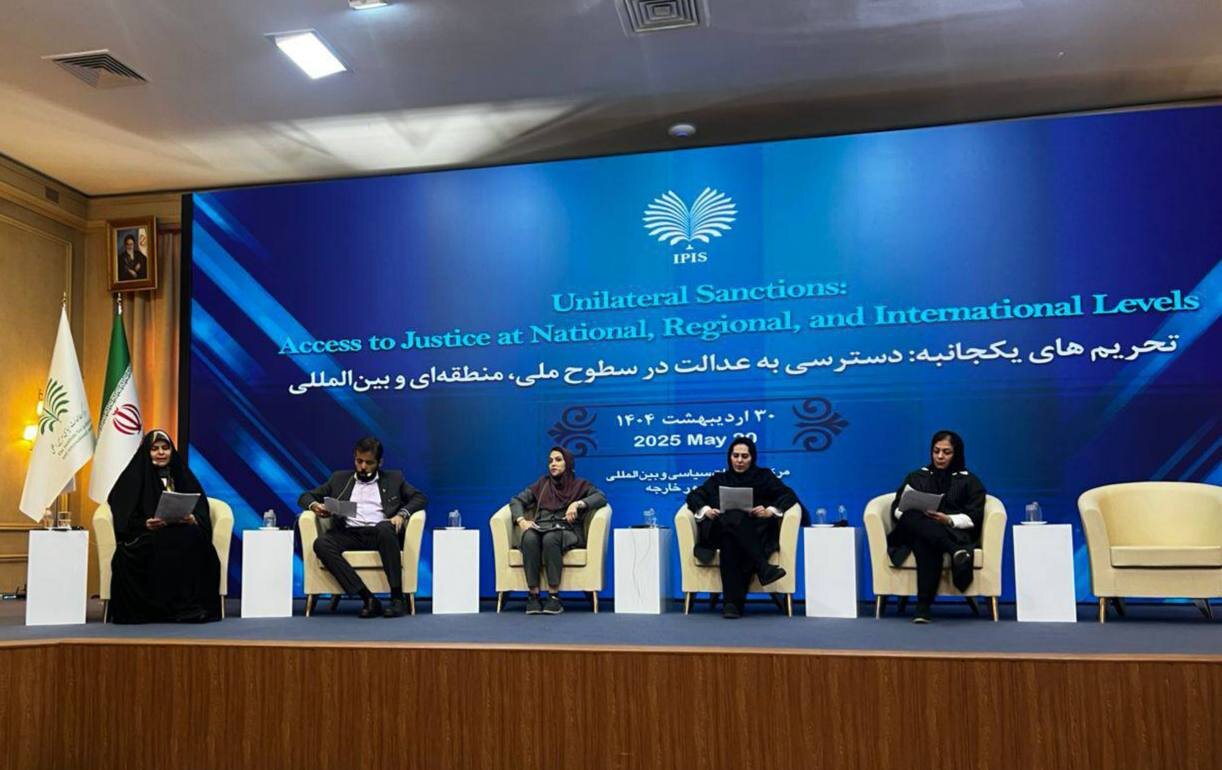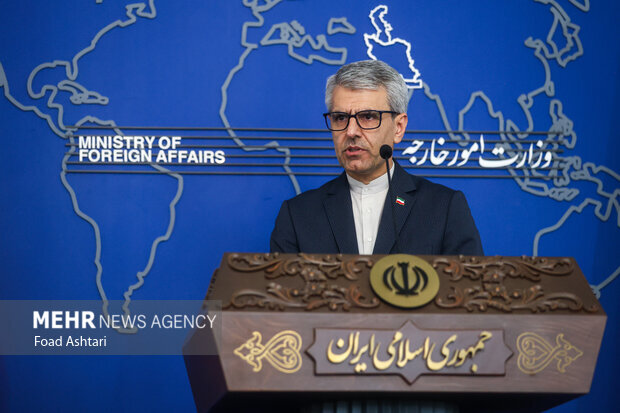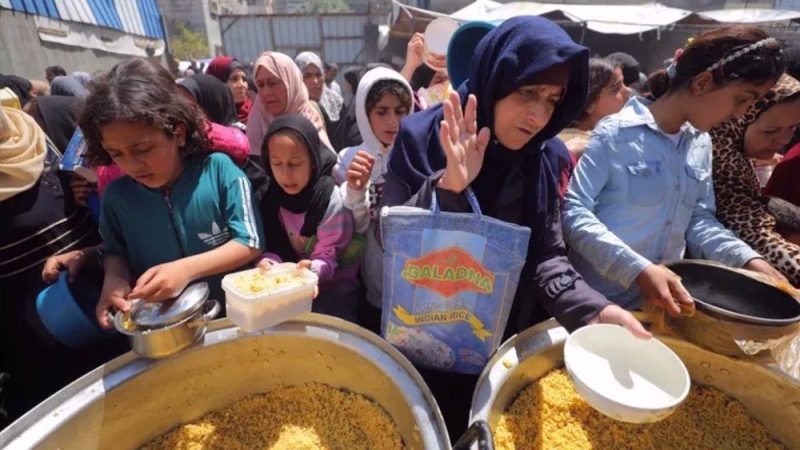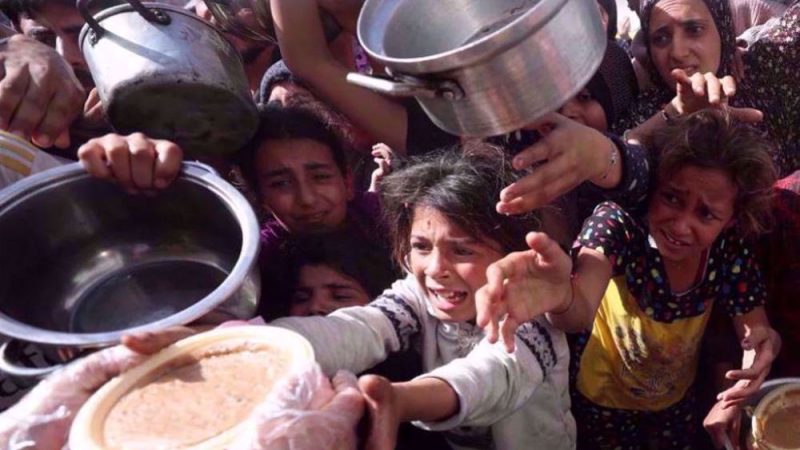The event was held at the Institute for Political and International Studies (IPIS) of Iran’s Ministry of Foreign Affairs in Tehran.
The event was attended by prominent figures such as Kazem Gharibabadi, Deputy Foreign Minister for Legal and International Affairs of Iran; Alena Douhan, United Nations Special Rapporteur; Ms. Attiya Waris, UN Independent Expert on Foreign Debt; along with a number of other experts and humanitarian rights activists.
One of the key panels of this conference was dedicated to “The Negative Impact of Unilateral Sanctions on the Enjoyment of Human Rights.” In this session, various humanitarian law experts engaged in discussions on the far-reaching consequences of sanctions.
Dr. Mona Rahmani, CEO of the International Institute of Future Development Advocates, stated in her address:
“Sanctions, despite their pain and hardship, have also created a platform for transformation. The Iranian people, throughout history, have proven to be resilient, innovative, and capable of creating new paths under pressure. From within the constraints of sanctions, seeds of self-sufficiency, innovation, and localized lifestyles have emerged — seeds that, if properly nurtured, could become part of the solution.”
The CEO of the International Institute of Future Development Advocates further emphasized the commitment of social activists to voicing the concerns of the Iranian people in international forums, adding:
“Overcoming the consequences of sanctions depends not only on macro-level national decisions, but also critically on the fair implementation of international law, rigorous oversight of structures, and mechanisms related to humanitarian rights. As social activists, we consider it our duty to be the voice of our beloved people in all global communities and assemblies — in the hope that the Iranian lifestyle one day reflects not the burden of unjust sanctions, but the right to choice, equality, and justice as enshrined in humanitarian rights charters.”
Dr. Rahmani stressed: “Economic pressures have weakened the family structure, and in many cases, led to its disintegration — particularly through the collapse of small and home-based businesses. For instance, at least 30% of rural carpet weaving workshops have disappeared, causing severe damage to rural communities and vulnerable populations compared to urban areas. Please consider that Iran’s carpet export volume has dropped by 90% since 2017, plummeting from $426 million to just $41.7 million — in an industry deeply rooted in Iranian culture, art, and tradition. Nearly 2 million people were part of the carpet industry’s employment chain, and with an average household size of four, that means 8 million people are now jobless — a figure comparable to the entire population of some European countries. Imagine an entire European country facing economic paralysis and widespread loss of income.”
She added: “As a result of these economic strains, the age of marriage has been delayed, and we now see its painful consequences in declining birth rates and the shrinking of Iran’s demographic window.”
Dr. Rahmani highlighted an often overlooked yet profoundly human aspect of this situation:
“There is something important that statistics often fail to reflect, yet it flows through the daily life of the Iranian people: throughout these years, we have shared our tables with millions of migrants and refugees living in Iran. Despite all hardships, the people of Iran chose to uphold not only their own dignity, but that of displaced people as well. This was not a choice driven by abundance, but one born of humanity. And this means that even at the height of sanctions and pressure, something remains unsanctionable: the heart and dignity of the Iranian people.”
Younes Arab, Director of the Thalassemia Association, addressed the impact of sanctions on patients with thalassemia. He referred to the limitations in accessing essential healthcare services and the detrimental effect of sanctions on treatment options, noting that sanctions have directly disrupted many aspects of medical care for these patients.
Ms. Rezaei, a representative of the Autism Association, also spoke about the export restrictions on essential medications for autism patients from European countries. She stated that such restrictions have had a significant impact on the social lives of patients with autism and their families.
Ms. Akhavan, university professor and board member of the Thalassemia Association, discussed the challenges faced by thalassemia patients in Iran. She highlighted the major problems resulting from sanctions, including limited access to essential medicines and medical equipment, and emphasized the severe negative effects on the quality of life and treatment processes for these patients. She also underlined the need for greater support and the removal of existing barriers affecting thalassemia patients.
This one-day conference also featured speeches from other distinguished individuals, including the Deputy Foreign Minister for Legal and International Affairs; the UN Human Rights Council’s Special Rapporteur on the negative impact of unilateral coercive measures on human rights; the UN Independent Expert on foreign debt and human rights; a representative of the Group of Friends in Defense of the UN Charter; the Head of Legal Affairs at the Presidential Office; and several renowned international law scholars and NGO representatives from both domestic and international institutions. The participants emphasized the urgent need for access to justice in order to curb the growing effects and consequences of unilateral sanctions and explored mechanisms to hold the sanctioning entities accountable.
MNA








